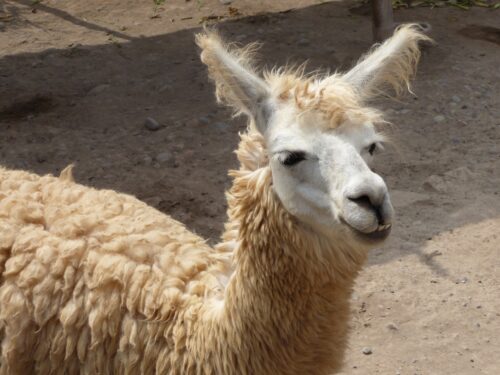Using Ethnographic Methods

In this unit (to accompany SAPIENS podcast S6E8), students will learn that ethnography is a research process that involves fieldwork and studying the cultural practices of a group of people in situ. According to Bronislaw Malinowski, the final goal of ethnography is “to grasp the native’s point of view, his relation to life, to realize his vision of his world” (Argonauts of the Western Pacific 1922). In this unit, students will explore fundamental ethnographic principles and look at the nature of culture as it relates to social, economic, and historical factors.
- Discuss the fundamental principles of ethnographic methods to understand and explore culture.
- Examine the dynamic nature of culture and its relationship to various social, economic, and historical factors.

Can Anthropologists Propel Astronauts Toward Mars?

The Bitter Side of Cocoa Production

Debitage

Emic/Etic

An Order for My Backpack and Three Stages of Nowhere

Best of SAPIENS 2024

Lessons From Lucy

Tackling the Impossibility—and Necessity—of Counting the World’s Languages

Erasure I and Erasure VI

Tallahassee Ghazal

Pequi Winds

Translation Notes

How and When Did Humans First Move Into the Pacific?

The Distant Origins of a Stonehenge Stone

Being a “Good Man” in a Time of Climate Catastrophe

Baltimore’s Toxic Legacies Have Reached a Breaking Point

At the Intersection of Sarinah Plaza, Thamrin Street

Strange Future

The Persistence of Fukushima’s Fisherfolk

Unearthing Culinary Pasts—With Help From Llama Poop
-
Using multiple data sources and methods to devise a comprehensive understanding of phenomena in qualitative research.
- Much of the data used in an ethnography are from researcher observation and participation. However, those are not the sole sources of information. Discuss the different ways of collecting evidence in ethnographic research.
- Evidence also comes through a research method called passive observation, which can be done through note-taking, photography, audio and video recording, and other methods. This allows the researcher to maintain objectivity. It also mitigates any altered behavior that may result from researcher participation. Discuss the usefulness of passive observation and areas where it may be lacking.
- Discuss a famous ethnographic study and how available technology can impact methods. An example would be Malinowski’s work in the Trobriand Islands. In Argonauts of the Western Pacific, Malinowski describes a ceremonial exchange of shell valuables called the kula ring. Malinowski’s mentor had provided him with a camera, a phonograph, and other anthropometric instruments for use in his work. Malinowski reported, “My weakest points are photographs and phonographic records … whenever skill comes into play I am not much good.” Ask students to discuss the role technology played in the study and how this advanced ethnographic work.
- Ethnography is typically considered a qualitative methodology used in the social and behavioral sciences. Discuss how ethnography could be useful as an element in a mixed-methods research project.
-
Nader, Laura. 2011. “Ethnography As Theory.” HAU: Journal of Ethnographic Theory 1 (1): 211–219.
-
Miller, Daniel. 2017. “Anthropology Is the Discipline but the Goal Is Ethnography.” HAU: Journal of Ethnographic Theory 7 (1): 27–31.
-
Shah, Alpa. 2017. “Ethnography? Participant Observation: A Potentially Revolutionary Praxis.” HAU: Journal of Ethnographic Theory 7 (1): 45–59.
- How does conducting an ethnographic study differ from other types of research?
- What are some of the practical considerations that need to be taken into account before conducting an ethnography?
- How does culture change over time?
- What are the ways a researcher can participate in ethnography?
Consider the following scenario and then provide answers to the questions below. Each answer should have one or two sentences.
You are a doctoral student from planet X. Your dissertation involves conducting an ethnography of human activity on planet Earth. Place yourself in a location where you can be a part of human behavior (or recall an event you have experienced, such as a holiday celebration, sporting event, etc., and try to imagine it as an outsider with no frame of reference for the activity). You have completed your experience and are ready to write your report, which should answer the following questions:
1. What is the name of the activity?
2. What is the activity’s purpose?
3. What procedures or protocols exist?
4. What are the activity’s time, space, and location requirements?
5. What personnel are required for the activity?
6. What is the nature of the group or social organization participating in the activity?
7. What are the occasions of the activity (specific date, frequency, etc.)?
After completing the questions above, answer this reflection question:
How would you use this information to construct theories about your subjects?
-
Article: Emerald Publishing’s “How to Use Ethnographic Methods and Participant Observation.”
-
Book: Stephen Bochner’s Cultures in Contact: Studies in Cross-Cultural Interaction
Aimee L. Richards, Freedom Learning Group
Looking Back at Coming of Age
